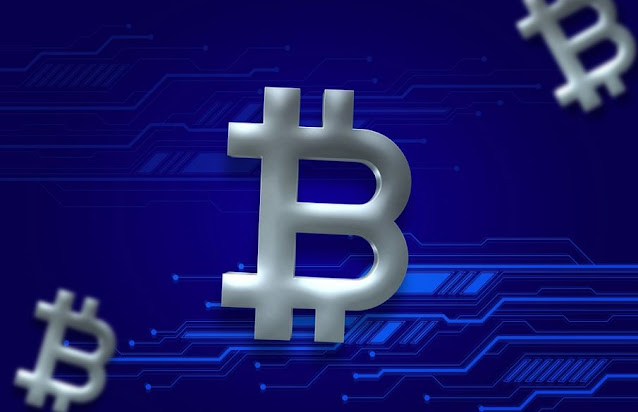
Bitcoin is a new kind of digital currency that operates on the Bitcoin network, which provides online Bitcoin payments. Bitcoin was invented in 2009 by Satoshi Nakamoto (a pseudonym). Bitcoin is decentralized meaning it does not belong to any form of government or organization. Bitcoin transactions are instant and global; within minutes, Bitcoin can be transferred across the world without worrying about cross-border fees or regulations. Bitcoin (BTC) can also be used at brick and mortar stores like restaurants, hotels, retail shops, etc. Bitcoin Up app can help if you want to get further information.
Who Owns Bitcoin?
Bitcoin is an open-source software project with contributors all over the world. There's no central authority that controls Bitcoin; it exists solely on users' computers all around the world that run Bitcoin software their machines keeping track of incoming/outgoing Bitcoin activity.
What Is Bitcoin's Value?
As of 2013, Bitcoin has a market capitalization of $1 billion USD (similar to large-cap stocks like GM, Ford, etc.), however, its price fluctuates daily based on supply and demand in 2022 with a much higher cap.
Bitcoin was introduced as an open-source project in 2009 with zero initial coin distribution; that is, the full amount of coins were not created at once and slowly distributed by rewarding Bitcoin miners for their efforts processing/validating transactions on the Bitcoin network. Every four years or so, the number of Bitcoins created in each new block drops 50% down to 25 BTC - this drop will occur until there are 21 million total Bitcoins minted which is estimated to be around 2140. This process is called Bitcoin halving.
Bitcoin's supply is hard-capped based on Bitcoin's code; Bitcoin has a limited amount of coins, which are divisible to 8 decimal places.
How Does Bitcoin Work?
The Bitcoin network consists of users' computers running Bitcoin software. These people are called Bitcoin miners because the process by which they help maintain the public ledger (called blockchain ) and validate/process transactions is very similar to mining other commodities like gold - these miners are rewarded for their efforts with bitcoins. The blockchain is where all Bitcoin activity gets recorded; it's a decentralized global public ledger that records every single bitcoin transaction since the beginning of time. Miners use special "hashing" hardware built specifically for processing SHA-256 algorithms ( Bitcoin's cryptographic hash function ) to validate Bitcoin transactions.
The Bitcoin system is programmed in a way that each new Bitcoin block that gets mined requires more and more computational power from miners as time goes on which makes it harder to mine Bitcoin as time goes on - this ensures Bitcoins don't flood the market all at once, but rather introduced over time making them more scarce and valuable over time. Bitcoin mining now happens primarily in large facilities called Bitcoin "farms" set up by companies with extreme amounts of processing power running 24 hours a day.
How Can You Get Bitcoins?
There are two ways for obtaining bitcoins: buying them from an exchange or accepting them as payment for goods/services. There are hundreds of merchants online and offline that accept Bitcoin. Bitcoin wallets, which are an essential part of Bitcoin, store Bitcoin addresses (like how email stores email addresses for sending/receiving emails). The Bitcoin address is the only information needed to send bitcoins to somebody; like giving somebody your contact info in order to receive money. However, if you do not want everybody in the world to know what your Bitcoin address is then you can encrypt it with a password. This way when somebody wants to send you bitcoins they'll submit your encrypted Bitcoin address and your password in order to transfer funds into your Bitcoin wallet.
What Is The Future Of Bitcoin?
Bitcoin has gone up exponentially in value since its creation nine years ago - It was initially worth $0 when it first launched at 0:00 UTC on January 3, 2009, and has gone on to be worth thousands of dollars. Bitcoin is currently trading on Bitcoin exchanges for approximately $5,300 (as of September 20, 2017) - however, Bitcoin's price constantly fluctuates based on supply/demand and its value may change drastically throughout the course of a day.
Bitcoin crypto is still in its infancy and incredibly risky; nobody knows whether Bitcoin will become a long-term trusted store of value or whether it'll completely fall apart due to technical problems at some point in the future. Bitcoin is extremely hard to regulate since there's no central agency that "owns" Bitcoin and transactions are anonymous - this lack of regulation raises concerns that Bitcoin can be used for criminal activity or money laundering which could lead to Bitcoin's demise.
The Bottom Line On Bitcoin
Bitcoin is also difficult to scale with transaction confirmation times sometimes taking hours; Bitcoin may not be the best payment method for somebody on a time crunch. Bitcoin can't be counterfeited but it can still be stolen like cash if you send your Bitcoin to somebody else without using some kind of Bitcoin "wallet" (which stores Bitcoin addresses and passwords encrypted on your computer or smartphone).
